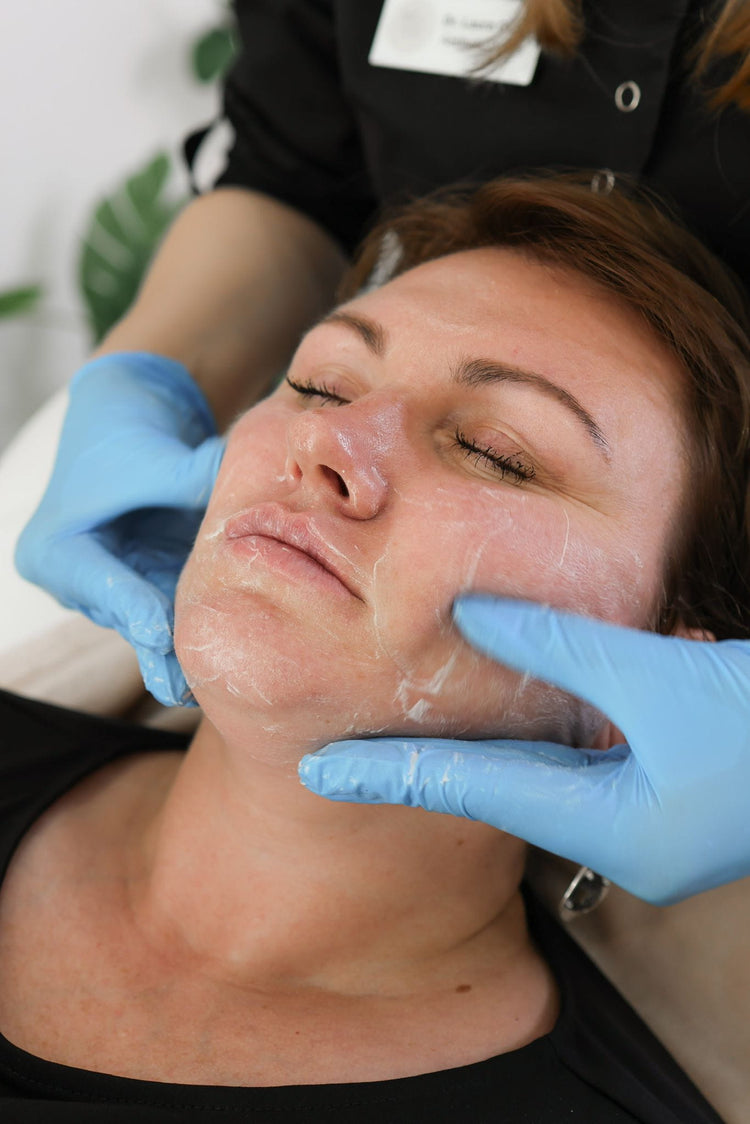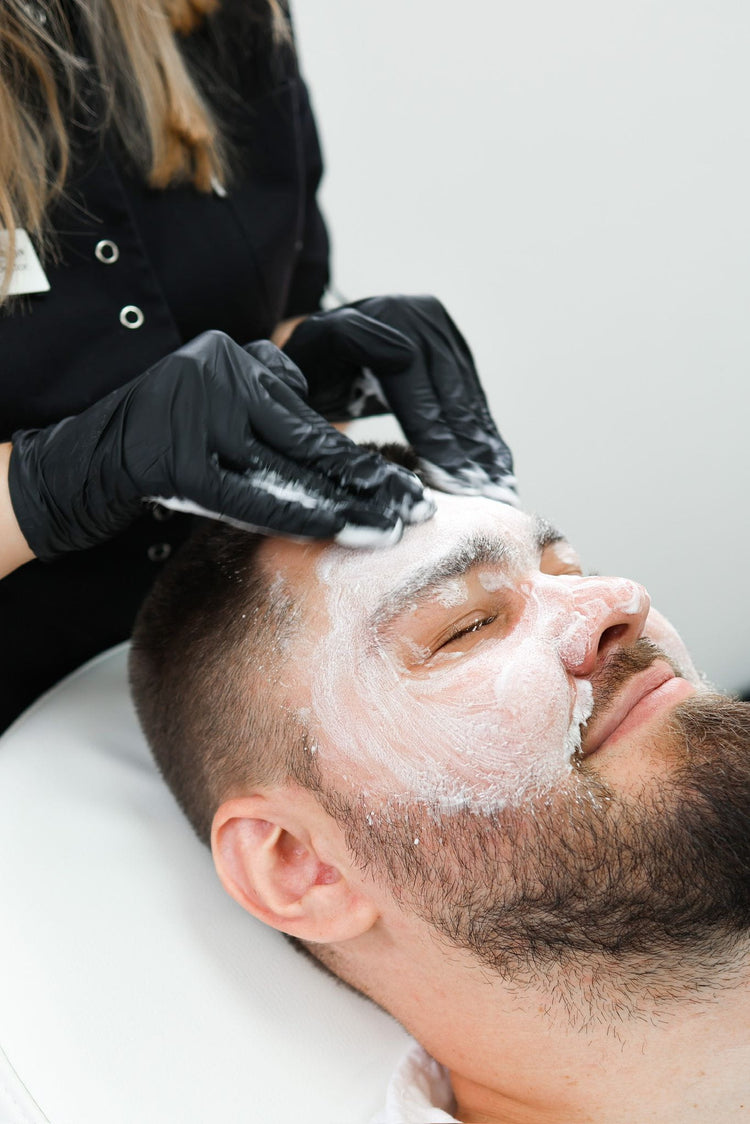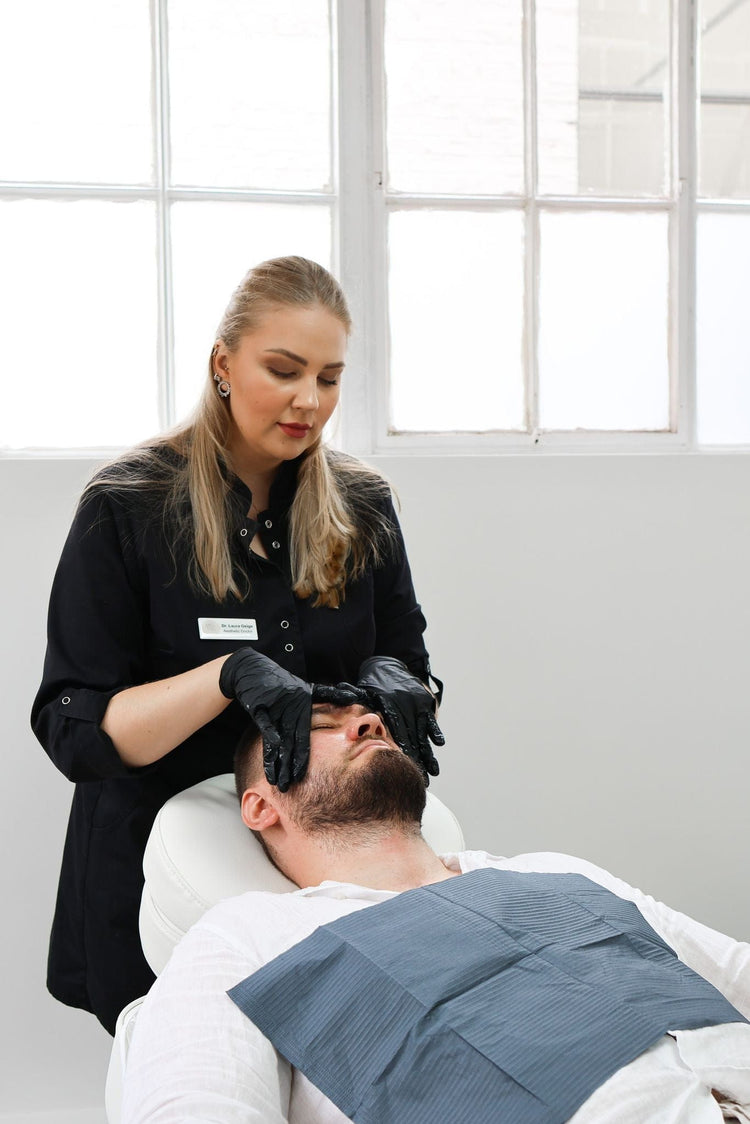Understanding Your Skin
Your skin is your largest organ, constantly exposed to the elements and reflecting your overall health. Understanding its unique needs is fundamental to achieving a healthy, radiant complexion.
Identifying Skin Type
Your skin is your largest organ, constantly exposed to the elements and reflecting your overall health. Understanding its unique needs is fundamental to achieving a healthy, radiant complexion. A key step in this process is identifying your skin type.
- Oily Skin: Characterized by excessive sebum production, leading to shine, enlarged pores, and a tendency for breakouts.
- Dry Skin: Lacking sufficient oil, resulting in flakiness, dryness, and tightness.
- Combination Skin: A blend of oily and dry areas, often with an oily T-zone (forehead, nose, and chin) and drier cheeks.
- Normal Skin: Balanced oil production with a smooth, even texture.
- Sensitive Skin: Prone to irritation, redness, and reactions to certain products or ingredients.
Determining your skin type is crucial because different types require specific care.
Recognizing Skin Concerns
Recognizing skin concerns is equally important for effective skincare. Common skin issues include acne, eczema, psoriasis, rosacea, and hyperpigmentation. Acne is characterized by pimples, blackheads, and whiteheads, often caused by excess oil production or clogged pores. Eczema manifests as dry, itchy, and inflamed patches of skin, while psoriasis involves thick, scaly plaques. Rosacea presents with redness, flushing, and visible blood vessels, typically on the face. Hyperpigmentation refers to dark spots or patches on the skin caused by sun damage or hormonal changes.
Understanding these concerns helps in selecting appropriate treatments and products.
Assessing Individual Needs
Once you have identified your skin type and any specific concerns, a consultation with a dermatologist or skincare professional is invaluable. They can provide personalized recommendations tailored to your unique needs.
A consultation allows for a thorough assessment of your skin’s condition, including analyzing its texture, tone, and any existing issues.
The professional can offer expert advice on cleansing, exfoliating, moisturizing, and protecting your skin.
They can also recommend specific products or treatments that are safe and effective for your skin type and concerns.
Customized Treatment Plans
A customized treatment plan is the cornerstone of successful skincare. It goes beyond simply choosing a product off the shelf; it involves a deep understanding of your individual needs and concerns.
Tailored Product Recommendations
Tailored product recommendations are essential for effective skincare because everyone’s skin is unique.
What works wonders for one person might be ineffective or even harmful to another. A customized treatment plan, developed in consultation with a skincare professional, takes into account your individual skin type, concerns, and lifestyle.
This personalized approach ensures that you receive products and treatments specifically designed to address your unique needs, maximizing their effectiveness and minimizing the risk of irritation or adverse reactions.

Addressing Specific Issues
A customized treatment plan is essential for effective skincare because it addresses specific issues.
It takes into account your individual skin type, concerns, and lifestyle to create a regimen tailored to your needs. For example, someone with oily skin and acne may benefit from products containing salicylic acid or benzoyl peroxide, while someone with dry skin might need hydrating serums and moisturizers.
A personalized approach ensures that you receive the most effective treatment for your specific concerns, leading to better results and a healthier complexion.
Lifestyle and Environmental Factors

A customized treatment plan is essential for effective skincare because it addresses specific issues. It takes into account your individual skin type, concerns, and lifestyle to create a regimen tailored to your needs. For example, someone with oily skin and acne may benefit from products containing salicylic acid or benzoyl peroxide, while someone with dry skin might need hydrating serums and moisturizers.
Lifestyle and environmental factors also play a significant role in skin health. Stress, inadequate sleep, poor diet, and smoking can all negatively impact the complexion.
Environmental factors such as pollution, sun exposure, and extreme temperatures can also contribute to skin damage. A skincare professional can help you identify these factors and recommend strategies to mitigate their effects.
Professional Expertise and Guidance
The path to radiant, healthy skin begins with understanding your unique needs.
Let me know if you’d like me to continue writing this article.
Diagnosis of Underlying Conditions
A professional consultation can help diagnose underlying conditions that may be contributing to skin issues.
- Hormonal imbalances
- Nutritional deficiencies
- Autoimmune diseases
These conditions can manifest through various skin problems, and addressing them at their root cause is crucial for long-term skin health.
Effective Product Application Techniques
A professional consultation offers personalized advice on sun protection, a crucial aspect of maintaining healthy skin.
Dermatologists can recommend the best type of sunscreen for your skin type and advise on proper application techniques to effectively shield your skin from harmful UV rays.
They can also guide you on the importance of wearing protective clothing, hats, and sunglasses to minimize sun exposure.
Monitoring Progress and Adjusting Treatments
Regular monitoring is essential for assessing the effectiveness of your skincare regimen and making necessary adjustments.
During follow-up consultations with a skincare professional, they will evaluate your progress, observe any changes in your skin, and address any concerns you may have.
This ongoing evaluation allows for fine-tuning of your treatment plan based on your skin’s response to the chosen products and therapies.
Adjustments may involve altering product formulations, changing application frequencies, or incorporating additional treatments.
A skincare professional can provide guidance on how to effectively use various ingredients and devices commonly used in skincare routines.
They can explain the benefits of exfoliation, retinoids, antioxidants, and other active ingredients, as well as demonstrate proper techniques for using tools like micro-needling pens or jade rollers.
Professional expertise ensures that you are utilizing these elements safely and effectively to achieve optimal results.
Maximizing Skincare Results
Investing in your skin’s health is a journey that begins with understanding its unique needs. A consultation with a dermatologist or skincare professional provides a crucial foundation for maximizing skincare results.
Preventing Future Skin Problems
A customized treatment plan is essential for effective skincare because it addresses specific issues.
It takes into account your individual skin type, concerns, and lifestyle to create a regimen tailored to your needs. For example, someone with oily skin and acne may benefit from products containing salicylic acid or benzoyl peroxide, while someone with dry skin might need hydrating serums and moisturizers.
A personalized approach ensures that you receive the most effective treatment for your specific concerns, leading to better results and a healthier complexion.
A customized treatment plan is essential for effective skincare because it addresses specific issues. It takes into account your individual skin type, concerns, and lifestyle to create a regimen tailored to your needs. For example, someone with oily skin and acne may benefit from products containing salicylic acid or benzoyl peroxide, while someone with dry skin might need hydrating serums and moisturizers.
Lifestyle and environmental factors also play a significant role in skin health. Stress, inadequate sleep, poor diet, and smoking can all negatively impact the complexion.
Environmental factors such as pollution, sun exposure, and extreme temperatures can also contribute to skin damage. A skincare professional can help you identify these factors and recommend strategies to mitigate their effects.
The path to radiant, healthy skin begins with understanding your unique needs.
Let me know if you’d like me to continue writing this article.
A professional consultation can help diagnose underlying conditions that may be contributing to skin issues.
- Hormonal imbalances
- Nutritional deficiencies
- Autoimmune diseases
These conditions can manifest through various skin problems, and addressing them at their root cause is crucial for long-term skin health.
A professional consultation offers personalized advice on sun protection, a crucial aspect of maintaining healthy skin.
Dermatologists can recommend the best type of sunscreen for your skin type and advise on proper application techniques to effectively shield your skin from harmful UV rays.
They can also guide you on the importance of wearing protective clothing, hats, and sunglasses to minimize sun exposure.
Regular monitoring is essential for assessing the effectiveness of your skincare regimen and making necessary adjustments.
During follow-up consultations with a skincare professional, they will evaluate your progress, observe any changes in your skin, and address any concerns you may have.
This ongoing evaluation allows for fine-tuning of your treatment plan based on your skin’s response to the chosen products and therapies.
Adjustments may involve altering product formulations, changing application frequencies, or incorporating additional treatments.
A skincare professional can provide guidance on how to effectively use various ingredients and devices commonly used in skincare routines.
They can explain the benefits of exfoliation, retinoids, antioxidants, and other active ingredients, as well as demonstrate proper techniques for using tools like micro-needling pens or jade rollers.
Professional expertise ensures that you are utilizing these elements safely and effectively to achieve optimal results.

Investing in your skin’s health is a journey that begins with understanding your unique needs. A consultation with a dermatologist or skincare professional provides a crucial foundation for maximizing skincare results.
Achieving Long-Term Skin Health
A customized treatment plan is essential because it addresses specific issues and takes into account your individual skin type, concerns, and lifestyle to create a regimen tailored to your needs.
Think of it like creating a personalized nutrition plan for your skin. Just as different diets work best for different people based on their health goals and dietary needs, skincare requires a customized approach.
For example, someone with oily skin prone to acne might benefit from products containing salicylic acid or benzoyl peroxide to control oil production and reduce breakouts.
Conversely, someone with dry, sensitive skin might need gentler, hydrating products with ingredients like hyaluronic acid or ceramides to improve moisture levels and protect the skin barrier.
A skincare professional can help you navigate the vast world of ingredients and formulations to find the perfect products for your unique needs.
Remember, effective skincare is a journey, not a destination.
It involves ongoing assessment, adjustments, and a commitment to caring for your skin’s health.
Building a Sustainable Skincare Routine
It takes into account your individual skin type, concerns, and lifestyle to create a regimen tailored to your needs.
For example, someone with oily skin and acne may benefit from products containing salicylic acid or benzoyl peroxide, while someone with dry skin might need hydrating serums and moisturizers.
A personalized approach ensures that you receive the most effective treatment for your specific concerns, leading to better results and a healthier complexion.
A customized treatment plan is essential for effective skincare because it addresses specific issues.
It takes into account your individual skin type, concerns, and lifestyle to create a regimen tailored to your needs. For example, someone with oily skin and acne may benefit from products containing salicylic acid or benzoyl peroxide, while someone with dry skin might need hydrating serums and moisturizers.
A personalized approach ensures that you receive the most effective treatment for your specific concerns, leading to better results and a healthier complexion.
The path to radiant, healthy skin begins with understanding your unique needs.
Book your consultation for radiant skin with Dr. Laura Geige at It’s Me & You Clinic
- Xela Rederm Skin Booster Treatments Near Redhill, Surrey - January 13, 2026
- Xela Rederm Skin Booster Treatments Near Claygate, Surrey - January 10, 2026
- Why Vessel’s Craftsman Series Is One Of The Best Luxury Vape Pens - January 9, 2026
